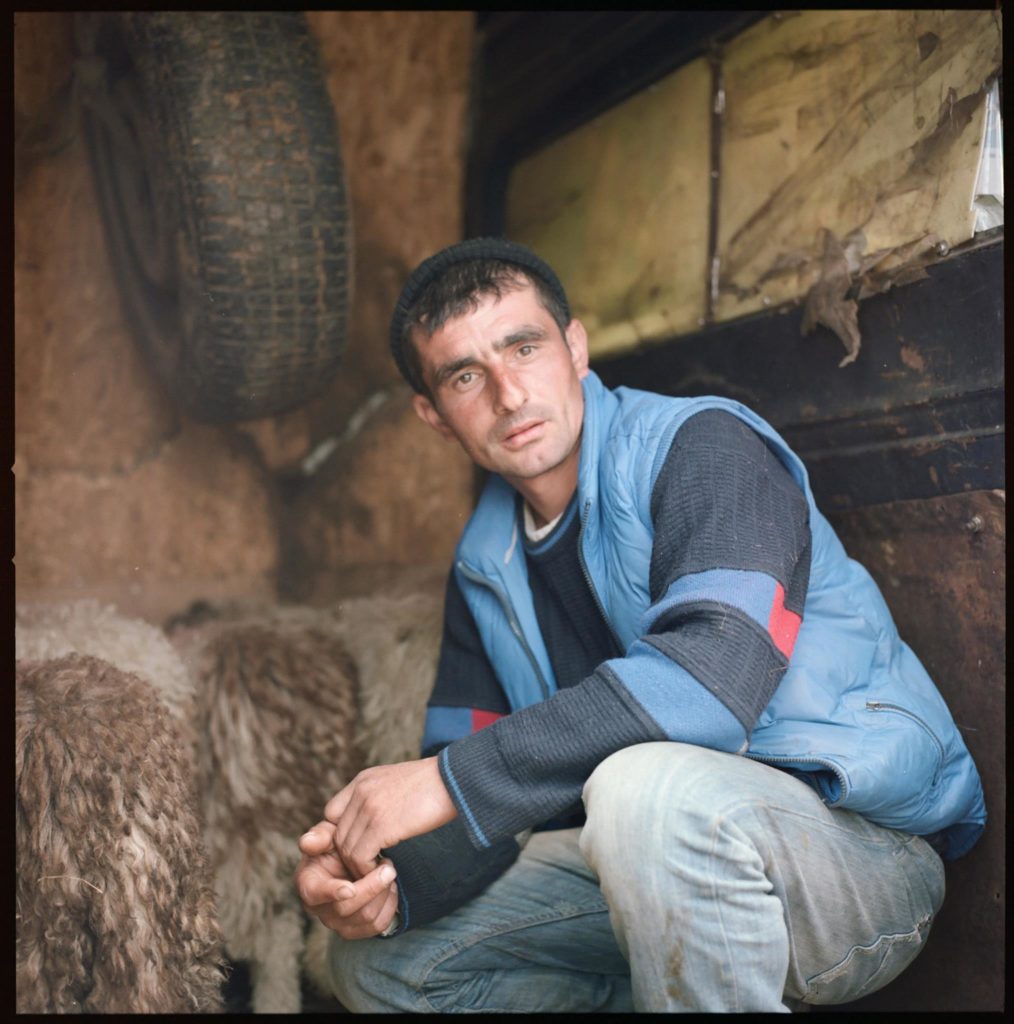This post is also available in: Italian

Time. It fascinates us all but
do I take it or not?
The one that got away, that perfect subject that coyly declines your offer of a portrait or sped by too quickly for you to pounce. Is lamenting part of the process or should we shoot and ask questions later?
It seems like we’ve been in a grubby rental car for years and any excuse to stretch my legs is met with enthusiasm. So when my friend asks if we should check out a meat market we passed, I do a U turn instantly.
As we enter the bustling strip by the side of the river the bleeping chorus greets us. Lambs cram into fenced-off cages, huge lorries and the odd car boot.
«They know» I say.
I’m thankfully not a vegetarian and I stroke a few as we crawl along. I spot a nicely lit man in the back of a car and ask to take his portrait, it’s quick and not great but enough to seduce me. As we stroll on I find myself stepping away and shooting open scenes instead of approaching people.
This annoys me and I can’t decide whether to commit to asking many of the great characters we pass. Watery eyes, sunken wrinkles, muddy hands and captivating smiles… what stops me?
«Maybe I should just ask, shoot, see what happens?»
«I don’t think so» my friend replies, «Making decisions about what to shoot is something that portrays maturity»
I’m on the fence.
Taking someone’s portrait on the spot is a quick-minded challenge. There’s a lot to think about and having the courage to step up is the first decision. If I asked every person I considered approaching wouldn’t this just be great practice for this anxiety-ridden task? Through this exercise would I not master the ability to think on my feet?
My friend argues this too hasty and disposable. It is shooting without thinking. Would I be like a tourist snapping images of street signs they will never look back on with adoration? He suggests the skill to make the decision is just as strong as the ability to make it a worthwhile image. Quantity or quality?
There have been many walks with friends when I have questioned their decision to stop and ‘frame up’ as I am 100% sure they have with me. However I have often been surprised when I see the image emerge on their contact sheet and see how their brain and eyes saw the very same scene with so much more intrigue and skill than I did.
One moment I will never forget is an early walk with a photographer and how after walking around for a good hour he remarked:
«I think there may have been a shot here, but I think it’s gone now».
He was suggesting that we had arrived too late to the party and that somehow we wouldn’t get the shot we were searching for… whatever that was.
I could relate, I don’t know why but perhaps our decision to shoot or not is more complex that just a yes or no and what is more important is that we are mindful either way. Shoot and think or walk away and analyse.
